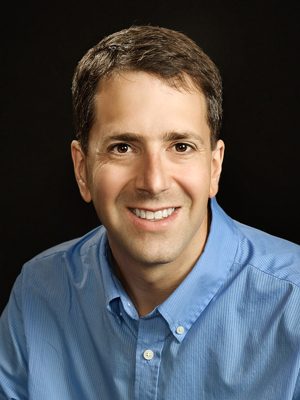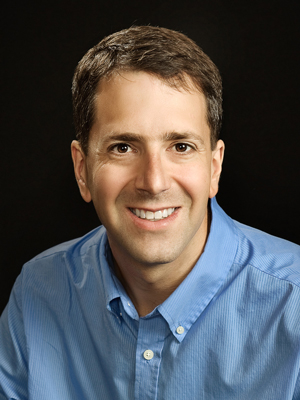Alex Chediak (@chediak) is a professor of engineering and physics at California Baptist University and the author of Preparing Your Teens For College (Tyndale House Publishers, 2014) and Thriving at College (Tyndale House Publishers, 2011). Learn more about Alex's work at his site.
Today we talk with Alex about spiritual preparation for college, the need for a vision to glorify God, and personal responsibility.

1) When we think of "preparing our kids for college" we often think through the actual academic preparation. But do parents think through the spiritual preparation?
It's easy to assume that our kids are spiritually prepared for college if they go to church with us, attend youth group, and aren't overly rebellious. But how much of this is the result of being in a Christian home? Will they resist sinful patterns and pursue Christian community when they're on their own? That requires internalizing the Christian faith for themselves, learning to cultivate spiritual disciplines for the sake of their relationship with God (and not just to please mom and dad).
Through instruction and modeling, we should engage our teens on spiritual matters as young adults whose accountability is ultimately to God. We should strive to give them an accurate understanding of the biblical message and pray that they experience true conversion.
2) Seems the church does a good job telling teens about following Christ, but not so well in helping them flesh out what that calling might look like. How can we be better at this?
Too many teens have a truncated view of Christianity in which prayer, Bible reading, evangelism, and worship services are important, but everything "secular" is somehow useless at best and contaminated at worst. Spiritual disciplines are vital, but Christian teens need a vision for glorifying God in the classroom, in the lab, in the library, on the sports field, in orchestra practice, in a part-time job, and everywhere else. The Bible teaches us to love God with all our minds. Teens should love learning because God gave them a brain, and he calls us to develop it in order to make the most of our talents. High school is a time to prepare for adulthood.
One idea would be for youth groups to occasionally bring in adults to talk about how they seek to glorify God and love others through their employment. High school is the ideal time for teens to identify their interests and talents (in terms of potential college majors or vocational directions). Let's help them also find Christian adults who work in these fields—science, business, health care, and so on—who can talk to them about it, giving them accurate expectations of what college and the career would be like. For example, in the book I cite a Barna Group youth poll conducted in 2009, which found that 52 percent of teens aspire to science-related careers, but only 1 percent of church youth workers said they had addressed issues of science in the past year. If the youth pastor isn't comfortable talking about it, a guest speaker could be invited. We don't want to give teens the false impression that "Christians don't do science."
3) In your experience, what do incoming freshmen seem to lack the most?
Time-management skills. College involves both more homework and more recreational options than high school. If you're living on campus, there is nobody to tell you when to study, go to bed, wake up, or go to class. Self-discipline and an ability to delay gratification are huge.
4) In your view, what is the single most important thing a parent can do to prepare their kids for college?
Train them to take personal responsibility for their life by giving them a measure of freedom and accountability in their day-to-day affairs. This looks different for a 13-year-old than for a 17-year-old. Part of it depends on a teen's maturity. We need to protect our children from excessive temptation, from bodily harm, and from mistakes that would have irreversible implications. But we also need to give them the space to make their own choices (including the occasional blunder). I fear we're too quick to shield our kids from negative consequences—which only teaches them that they're helpless. Instead, we need to help them assess what went wrong and get back up. Resilience is cultivated by learning from failure and overcoming adversity.
5) If you could speak to a high-school freshman, what would you tell them to do in the next four years to prepare themselves for college?
That's actually a book I have not written! I wrote a book for college students, and I've written a book for parents of teens. But perhaps I'd say something like this:
Be faithful in the little things, day by day. They add up. Develop your brain out of gratitude and worship for the God who gave it to you. Work hard in school. Do your homework without being told. Embrace adulthood—it's what growing up is for.
Don't be jealous of those who are more successful, wealthier, better looking, or more popular. And don't look down on anyone. See everything you have as a gift—your calling is to be faithful and to be a blessing.
Ask God to give you wisdom about the future. Get advice from people you trust about what you're good at, about how you can be useful in this world, for God's glory and the good of others. Try things. Don't be afraid to fail; failure is the back door to success.
Pursue close friendships with people whose priorities and values you admire—because you'll end up like them. Every secret thing you do is done with God in the room. And we never really get away with anything.
Success in school, in work, in relationships, and in life is the overflow of character and maturity. And character and maturity flow from a God-mastered life.
Daniel Darling is vice-president of communications for the Ethics and Religious Liberty Commission. He is the author of several books, including his latest, Activist Faith.










